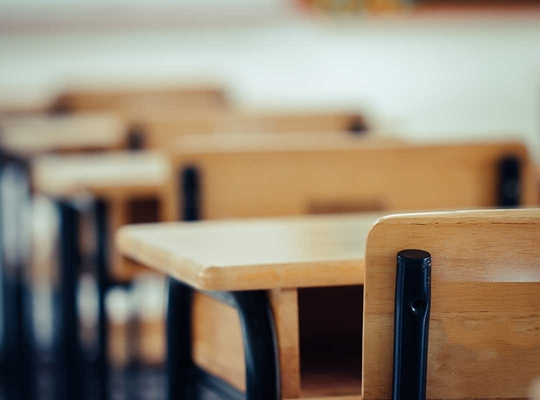You are here
Nursery school children and primary school children can return to school full-time

“It will now be safe and feasible to bring all pupils back to their familiar classrooms again.” Flemish Minister of Education Ben Weyts responds with satisfaction to the compromise on reopening of schools. Both nursery and primary education will start up again next week. The requirement of four square metres per pupil has been dropped. “These relaxations did not yet seem feasible last week, but scientific understanding has evolved in the meantime.”
Safe restart with the classroom as a contact bubble
Central to the educational compromise: every classroom becomes a contact bubble. The requirement to provide four square metres per pupil has been dropped. That relaxation allows a restart for the majority of schools, says Ben Weyts. “I ask forgiveness from all those principals and teachers who are already busy rearranging their schools. However, this is the simplest and yet safest way of reopening, with which we can accommodate hundreds of thousands of children, parents, teachers and principals.”
Nursery school children from 2 June
All nursery education levels can restart full-time from Tuesday 2 June. The class group becomes the contact bubble, even if there are more than 20 children. Social distancing no longer needs to be maintained and teachers do not have to wear face masks with their children.
Primary school from 5 June
All primary school years can restart from Friday 5 June. Again, the class group is the contact bubble, regardless of the number of pupils. The rationale of the contact bubbles will, however, be maintained on the playground. Social distancing remains important between the teacher and the pupils, between adults and in places where groups gather, such as at the entrance to the school. Teachers wear a face mask when they mingle with pupils and in all contact with other adults.
30 days gained
“We have had to relinquish three primary education school days. However, we are actually gaining 30 days for all pupils, teachers and parents throughout Flanders. That is because under these relaxed conditions, the vast majority of schools can reopen completely. It will now be safe and feasible to bring all pupils back to their familiar classrooms again,” explains Ben Weyts.
Flanders is taking the lead
For secondary education, the agreements made by the education partners last Friday will remain unchanged. “You can rightly criticise the decision-making process, but I am proud that Flanders has taken the lead. The end result is that schools may and can open,” Ben Weyts concludes.

